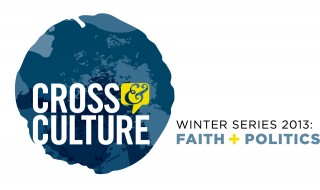
“Liberty Hill” by Marvin Olasky
Note: This article first appeared in WORLD Magazine on October 5, 2012. It is reprinted here with the permission of the author, Marvin Olasky, who is a former member of All Saints and also the speaker at the Cross and Culture series event on March 1, 2013. Please save the date and plan to attend.
“In Church Remember That it’s Sunday, but Tuesday’s Coming”– Marvin Olasky
One WORLD subscriber, Thomas Sandlin, describes himself as “just an old retiree living in the backwater small town of Liberty Hill, Texas.” But any community with Liberty in its name is not a backwater. Liberty is not a backwater concept. It’s the high-water mark for politics in America, where our Liberty Bell exhorts us, in the words of Leviticus 25:10, to “proclaim Liberty throughout all the Land unto all the Inhabitants thereof.”
Sandlin continued, “My pastor cannot get up and tell the congregation how to vote, but he certainly can point out the duty of Christians to participate in the electoral process.” That’s a good distinction, and Sandlin’s letter raised two questions in my mind: What’s the basis for liberty, and when’s the right time to proclaim it?
The Old Testament exhortation to liberty comes in the context of Jubilee, the once-in-50-years erasure of financial debts. But the New Testament tells us that Christ’s sacrifice wipes out our deeper debts, so we don’t have to wait half a century to discover liberty. The verses immediately after the famous John 3:16 passage declare, “For God did not send His Son into the world to condemn the world, but in order that the world might be saved through Him. Whoever believes in Him is not condemned.”
Because of Christ’s saving power we can live in this world without condemnation. We don’t have to follow medieval exhortations to go behind monastery or nunnery walls to lead the richest Christian life. Liberty in Christ frees us from God’s eternal penalties for disobeying His law. The Holy Spirit increasingly subdues our natural desires to murder or think murderous thoughts, commit adultery, steal, lie, and covet.
Apart from Christ, we use our liberty to do all those things, and government grows. Each fatherless child: more social workers and welfare payments. Each theft: more police. And so on. The most important step pastors can take to shrink the size of government is not to give political sermons but to preach Christ crucified and risen. Since much of American politics these days involves people asking government to legitimize sin, bold preaching and teaching on Sunday affects the decisions we make from Monday through Saturday.
Does this mean that pastors should ignore politics? No, it just means that pulpit time is too important to spend on campaigns that are like the grass of the field, springing up in Iowa and dying in Chicago. Here’s my key point: We don’t have to politicize churches, because churches are not the only venues in which Christians work together. All through the week Christians can and should form associations, organizations, and political clubs. We have six days of the week to study the issues and love our neighbors as ourselves by warning them about politicians who dishonor parents and defend abortion, unmarried sex, theft, lying, and coveting.
Just as liberals think that if government doesn’t do something, it won’t get done, so some Christian conservatives think that if pastors don’t head the parade, Christian values will be ignored—but that’s a lazy layman’s excuse. Pastors function well as reporters, spotlighting problems and teaching us their solution through Christ. God calls others to politics. A century ago Abraham Kuyper famously declared that every inch of this world is Christ’s. So is every minute, and if we don’t from Monday through Saturday form groups with our neighbors to apply what we learn on Sunday, we have no one to blame but ourselves.
I’ve twice heard Tony Campolo bring the Clintons and large Democratic audiences to their feet as he delivered his famous sermon, “It’s Friday, but Sunday’s coming.” (In 1995 they were politically chastened and depressed; in 1997, after a big election win, they thought Sunday had come.) With Election Day coming soon, I don’t object to pastors, after exegeting Scripture, pointing out—to use Tom Sandlin’s words—“the duty of Christians to participate in the electoral process.” They can remind their flocks, “It’s Sunday, but Tuesday’s coming.”
The first Tuesday in November is especially important this year, with two alternative beliefs about government, debt, and compassion duking it out. God has given us liberty, and Christians have an obligation not to disdain His gift.